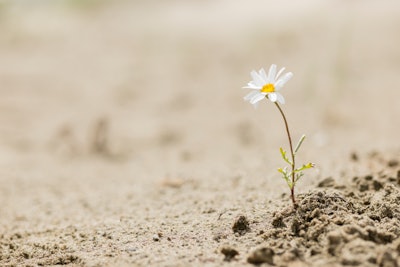
Your clients’ pets are members of the family, and they care deeply about their well-being. The last thing they ever want is for something to happen to them which could have been prevented.
But what if there was a threat lurking right in the backyard?
Many people forget that certain landscape plants can be harmful to pets. As a landscape professional, you might be aware of the importance of avoiding poisonous plants like Poison Ivy or Poison Sumac while working outside. But you could do your clients a huge favor by educating them on what plants could be harmful for their pets to digest.
This can be invaluable information when deciding what plants to install within the landscape. Animals have a tendency to munch on plant material while hanging out in the yard—but if your clients install the wrong choices, it could have deadly consequences.
Jo Cosgrove, landscaper and horticulturist at Trees.com shares some of the plants that could be harmful to pets.
Aloe Vera
While it is perfectly safe for humans to smear or even consume aloe pulp, it is absolutely not appropriate for a dog’s system. Saponins in aloe leaves can bring on vomiting, diarrhea, lethargy, tremors, and general central nervous system depression.
Amaryllis and Daffodils
Some very common ornamentals might be planted around your house en masse. Amaryllis bulbs, which contain the alkaloid lycorine, are often potted and brought inside for holiday decor. Daffodils bloom in mid-spring. These flowers, if ingested, can cause intestinal spasms, low blood pressure, salivation, tremors, vomiting, diarrhea, and even cardiac arrhythmia.
Begonias
This very common home and garden plant contains needle-shaped crystals of calcium oxalate called “raphides“ that can cause severe inflammation and irritation to any tissues. They are found throughout the plant but are concentrated in the stems and tubers. They can cause vomiting and excessive salivating as the body tries to purge or dilute the irritant. These symptoms should be reported to a vet immediately!
Baby’s Breath
While not necessarily something you’d grow in the landscape, this plant is also worth mentioning since it’s so often brought into the home. The bouquet filler in every last-minute grocery store bunch of Mother’s Day, Birthday, and anniversary roses will cause vomiting and diarrhea.
Sago Palm
Also, remind your clients that many of the houseplants they might purchase can be dangerous for pets. Sago Palm is a common houseplant that is adored for its tropical aesthetics. But it can cause liver failure and death in severe cases when ingested by pets. All parts are extremely toxic.
Guiding your clients to smart choices
At the end of the day, you can be instrumental in helping your clients to make smart choices in plant material not only in terms of looks and appeal—but also safety. Having some knowledge of plants that are poisonous to pets can help set you up as a helpful resource to your pet-owning customers.









